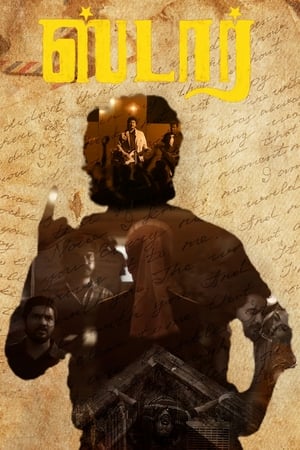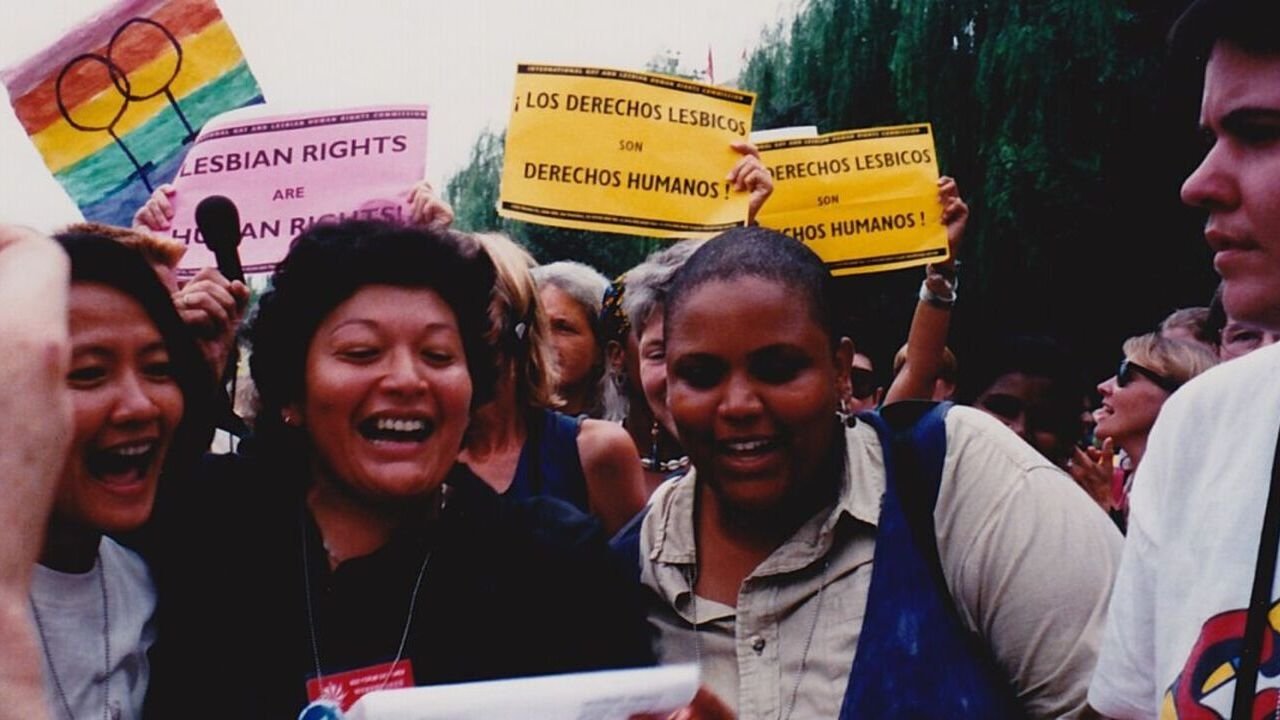

We Are Here(2016)
What happens when 300 lesbians from around the world attend the largest United Nations conference? How did two busloads of lesbians headed to an underground nightclub help spark the birth of a lala (LBT) movement in China? At the 1995 Fourth World Conference on Women in Beijing, the first ever lesbian tent at an UN NGO Forum was created. Emerging from hidden shadows of shame and invisibility, Chinese lalas began a hard-fought path of deliverance from themselves, from family, and from an apprehensive environment. In doing so, they sought empowerment and change as they explored concepts and issues from self-affirmation to rights consciousness. The film powerfully moves forward to the present day and shows the drastic change in today’s young feminist lalas – their challenging of sexism and homophobia with daring public street actions on subways – a parallel action to their forerunners in 1995, with much vigor and defiance 20 years later.
Movie: We Are Here

我们在这里
HomePage
Overview
What happens when 300 lesbians from around the world attend the largest United Nations conference? How did two busloads of lesbians headed to an underground nightclub help spark the birth of a lala (LBT) movement in China? At the 1995 Fourth World Conference on Women in Beijing, the first ever lesbian tent at an UN NGO Forum was created. Emerging from hidden shadows of shame and invisibility, Chinese lalas began a hard-fought path of deliverance from themselves, from family, and from an apprehensive environment. In doing so, they sought empowerment and change as they explored concepts and issues from self-affirmation to rights consciousness. The film powerfully moves forward to the present day and shows the drastic change in today’s young feminist lalas – their challenging of sexism and homophobia with daring public street actions on subways – a parallel action to their forerunners in 1995, with much vigor and defiance 20 years later.
Release Date
2016-05-20
Average
7
Rating:
3.5 startsTagline
Genres
Languages:
Recommendations Movies
 5.5
5.5Don't Sleep(en)
After moving into a cottage together, two young lovers confront horrors of a forgotten childhood.
 6.0
6.0The Apology(en)
Twenty years after the disappearance of her daughter, a recovering alcoholic is preparing to host her family's Christmas celebration when her estranged ex-brother-in-law arrives unannounced, bearing nostalgic gifts and a heavy secret.
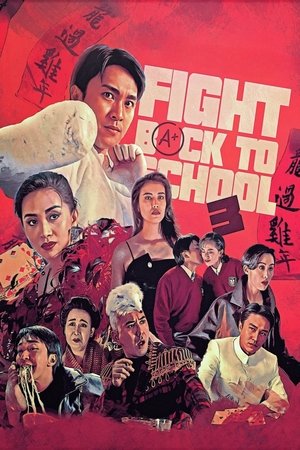 6.5
6.5Fight Back to School 3(cn)
Chow Sing Sing returns, only this time he doesn’t go back to school. Instead, Chow goes undercover as the husband of a wealthy socialite, which doesn’t sit well with his fiancée, who tries to convince Chow to quit working as undercover.
 6.3
6.3Spider(en)
After being fired by his ruthless boss, the dangerously vulnerable David is forced to confront the looming loss of his terminally ill mother, Annie, as well as his own relentless demons.
 6.3
6.3I Want You Back(en)
Peter and Emma thought they were on the precipice of life’s biggest moments – marriage, kids, and houses in the suburbs – until their respective partners dumped them. Horrified to learn that the loves of their lives have already moved on, Peter and Emma hatch a hilarious plan to win back their exes with unexpected results.
 5.9
5.9The Year I Started Masturbating(sv)
Ambitious overachiever Hanna just needs one more kid before her life is perfect. Instead, her baby daddy unexpectedly dumps her. Suddenly, she finds herself without a place to live, job or family. With every fiber of her being set for victory, Hanna refuses to give up and decides to win him back. But to get there means having to win something much more important, love and desire for herself and who she is.
 6.3
6.3The No Man Zone. The Movie(ru)
What will happen if, as a result of biological warfare, almost the entire male population dies out? Women will grieve (for a short time), and then they will unite and create a new better world - with eco-towns, renewable energy, opportunities to do whatever they want, even science and biohacking, even yoga and self-development. Reproduction now occurs by artificial insemination, and only girls are born in the new world. But not everyone likes such a world order. Some of the surviving men and women loyal to them go to live in abandoned cities, begin to steal electricity, enjoying freedom and traditional sex. The tranquility of the ideally arranged female world is threatened when teacher Rada from the eco-city "Two Hills" meets the young "primate" Hera outside it.
 6.0
6.0Return of Sabata(it)
Master gunslinger Sabata arrives in Hobsonville, a town completely owned by McIntock, a robber baron who is taxing the inhabitants for the cost of future improvements to the town. Or that's what McIntock says he'll do with the money...
 5.6
5.6Fistful of Vengeance(en)
A revenge mission becomes a fight to save the world from an ancient threat when superpowered assassin Kai tracks a killer to Bangkok.
 5.8
5.8Star(fr)
Star follows the path of Tito and Jay, two brothers living in the Montreal neighborhood of Park Extension. Accompanying these young people in their daily life marked by complicity and intimidation, Star tackles themes dear to teenagers: identity and friendship.
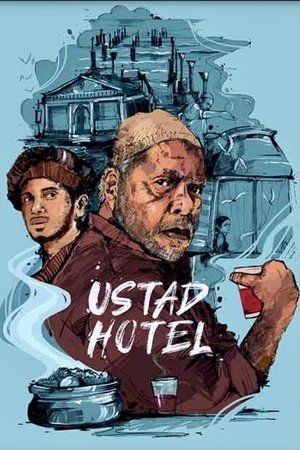 7.5
7.5Ustad Hotel(ml)
When his father refuses to support his choice of a career, an aspiring chef tries to fulfil his dream by helping his grandfather run his small eatery.
 7.1
7.1Diary of a Chambermaid(fr)
Celestine has a new job as a chambermaid for the quirky M. Monteil, his wife and her father. When the father dies, Celestine decides to quit her job and leave, but when a young girl is raped and murdered, Celestine believes that the Monteils' groundskeeper, Joseph, is guilty, and stays on in order to prove it. She uses her sexuality and the promise of marriage to get Joseph to confess -- but things do not go as planned.
 6.5
6.5Bonanza: The Return(en)
A man with a grudge against the late Little Joe seeks revenge on the Cartwrights and attempts to take over the Ponderosa.
 7.1
7.1Lola's Secret(it)
Young man has his dreams come true when the sexy new maid seduces him. But she also has a secret that leads to trouble.
 7.8
7.8Demon Slayer: Kimetsu no Yaiba Mt. Natagumo Arc(ja)
A recap of Kimetsu no Yaiba episodes 15–21, with new footage and special end credits. Tanjiro, now a registered Demon Slayer, teams up with fellow slayers Zenitsu and Inosuke to investigate missing person cases on the mountain Natagumo. After the group is split up during a fight with possessed swordfighters, they slowly begin to realize the entire mountain is being controlled by a family of Demon spider creatures.
 7.7
7.7South Park: Joining the Panderverse(en)
Cartman's deeply disturbing dreams portend the end of the life he knows and loves. Meanwhile, the adults in South Park are wrestling with their own life decisions, as the advent of AI is turning their world upside down.
 9.8
9.8What's New Scooby-Doo? Vol. 10: Monstrous Tails(en)
Snoop along with Scooby-Doo, Shaggy, Velma, Daphne and Fred one last time in this 10th and Final Volume of What's New Scooby Doo Volume 10: Monstrous Tails. The gang flies to the South Pole to fish for clues in hopes of hooking an amphibious menace in Uncle Scooby and Antarctica. Heading north to the Orient, they toy around in a giant water ducky to cool off a ferocious Chinese fire-shooting dragon in Block-Long Hong Kong Terror. Back down under in Australia's Great Barrier Reef, artist Shaggy enters a sand castle contest where a yucky corral creature threatens to wash away his dreams of Clamalot in Great Reef. So it's good to finally be back in their old Kentucky home -- Fort Knox to be exact -- until a golden ghoul turns everything it touches into statues with it's gold finger in Gold Paw.
Similar Movies
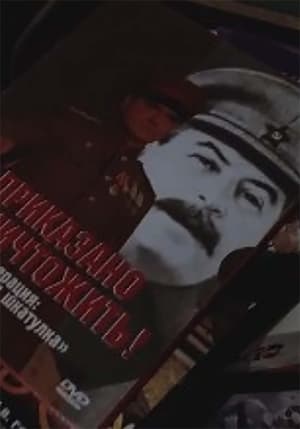 0.0
0.0We Sit In Silence At The Memorial Table(en)
A silent film by Vietnamese director Truong Minh Quy in collaboration with Belgian director Nicolas Graux, was shot on the set of a film by Graux. We Sit in Silence at the Memorial Table is inspired by Educational Objectives, a poem written by Aleksey Garipov and translated to English by Nicolas Graux.
 7.6
7.6Twenty Two(zh)
Follow the lives of the elderly survivors who were forced into sex slavery as “Comfort Women” by the Japanese during World War II. At the time of filming, only 22 of these women were still alive to tell their story. Through their own personal histories and perspectives, they tell a tale that should never be forgotten to generations unaware of the brutalization that occurred.
 0.0
0.0China. The Arts – The People(de)
China marks the beginning of the extensive Asian theme in Ottinger’s filmography and is her first travelogue. Her observant eye is interested in anything from Sichuan opera and the Beijing Film Studio to the production of candy and sounds of bicycle bells.
 8.0
8.0Heidi in China(en)
In 1946, Heidi is entrusted to a Swiss family by her father. He will never come back for her. Today, François Yang questions his mother about her past. What follows is a journey to China, a quest to reconstruct memory. Through contact with her brothers and sister, Heidi measures the extent of the drama experienced by her family that remained in China, persecuted by the Communist Party.
 7.0
7.0The Yellow Bank(zh)
A short documentary that captures the longest total solar eclipse of the 21st century, The Yellow Bank takes you on a contemplative boat ride across the Huangpu River in Shanghai, China. Filmmaker J.P. Sniadecki, who lived and worked in Shanghai nine years earlier, uses the eclipse as a catalyst to explore the way weather, light, and sound affect the urban architectural environment during this extremely rare phenomenon.
 9.0
9.0Demolition(zh)
"If the old doesn't go, the new never comes" recites a teenager hanging out near a demolition site in the center of Chengdu, the Sichuan capital in western China. In Demolition, filmmaker J.P. Sniadecki deconstructs the transforming cityscape by befriending the migrant laborers on the site and documenting the honest, often unobserved, human interactions, yielding a wonderfully patient and revealing portrait of work and life in the shadow of progress and economic development.
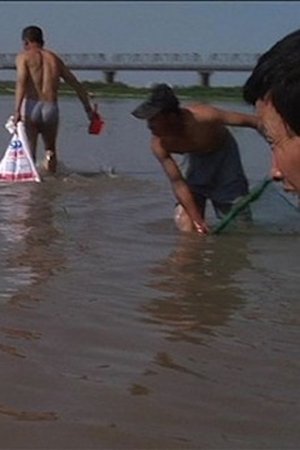 0.0
0.0Songhua(zh)
In northeastern China the Songhua River flows west from the border of Russia to the city of Harbin, where four million people depend on it as a source of water. Songhua is a portrait of the varying people that gather where the river meets the city, and an ethnographic study of the intimate ways in which they play and work.
 0.0
0.0First Vote(en)
A soon-to-be first-time voter, the filmmaker’s thought-provoking journey into the Rust Belt and South captures four Asian American voters’ ardent first time grassroots political participation ignited by the 2016 rise of “Chinese Americans for Trump.” FIRST VOTE is a character driven cinema verité style film chronicling the democratic participation of four Asian American voters from 2016 through the 2018 midterm elections.
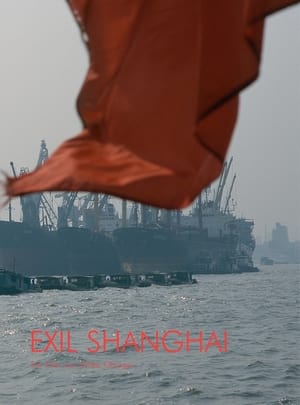 0.0
0.0Exile Shanghai(de)
Six life stories of German, Austrian and Russian Jews which intersect in exile in Shanghai. Out of narratives, photographs, documents and new images of the biggest and most contradictory metropolis of the Far East an entity develops in which the historic exile takes and turns on a completely current power and appeal.
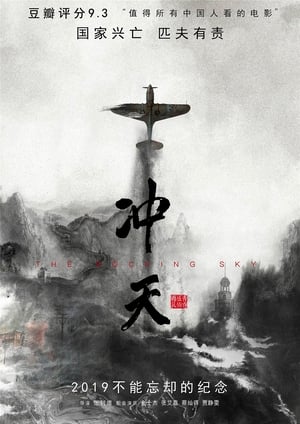 9.0
9.0The Rocking Sky(zh)
To commemorate the 70th anniversary of the victory of WWII, this documentary film describes the eight years of dauntless air-force fighting of the republic of China during the Anti-Japanese War, with only 300 combat-capable aircraft from China while Japan had over 2000.
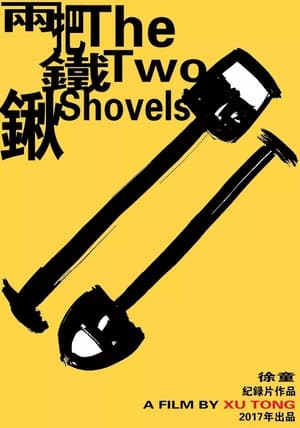 0.0
0.0The Two Shovels(zh)
After "Old Tang Tou", Xu Tong continued to film the family of Old Tang Tou's son, Tang Laosan, in Northeast China. Tang Laosan was sent to prison for a murder case, and Tang Laosan's son, Xiaobao, unexpectedly encountered such a change in the year of his high school entrance exams, which made the fates of father and son both unpredictable.
 6.2
6.2Doctor Ma's Country Clinic(zh)
"Huangyangchuan, Gansu province, China. It's an arid mountain area with poor roads. Ma Bingcheng is well-respected local doctor, so many patients (most of them farmers) come to see him every day. In his small clinic, people chat with each other about their lives, local conditions, or the people they know. The clinic seems to open up like a microcosm, the information and experiences of different people intertwine, revealing the conditions of typical Chinese farmers, and the typical fates of both young and old--"
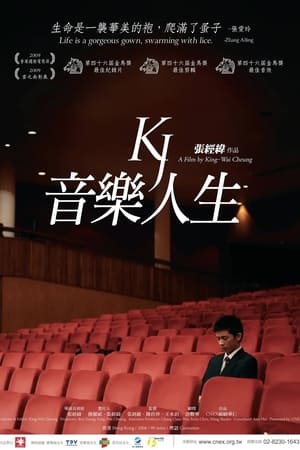 7.8
7.8KJ: Music and Life(cn)
KJ is a biography of a HK musical genius. At the age of 11, KJ won the Best Pianist price and went to Czech to perform with a professional orchestra. Touching on subjects such as the meaning of life, God and the artistic process, the director’s 6-year-conversations with KJ reveal how a young man inspires by his music teacher, Nancy Loo and how he conflicts with his peers and parents. KJ is not about the victory of a genius, but how he learns to be a "human being".
 6.3
6.3Umbrella(zh)
Workers, peasants, soldiers, students and merchants were five groups of Chinese society in the 1950s, after the so-called elimination of the exploited class. Borrowing this concept, the umbrella is taken as the clue to rediscover changes in various social classes after the economic reform, and to analyze the social problems in China. Workers making umbrellas, merchants selling umbrellas, students looking for jobs in the rain. Umbrella is used as a metaphor that can be seen everywhere. As the raindrop, what we see is sometimes clear, sometimes untraceable.
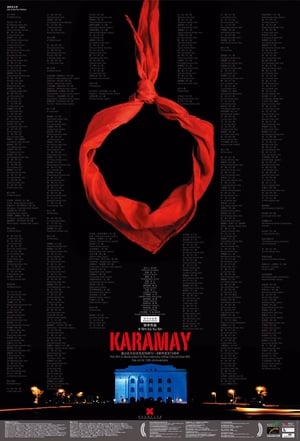 7.5
7.5Karamay(zh)
In 1994, the oil-rich city of Karamay in Northwest China was the site of a horrible fire that killed nearly 300 schoolchildren. The students were performing for state officials and were told to stand by while the officials exited first. After the fire, the story was heavily censored in the Chinese state media. To this day, the families of Karamay have not been allowed to publicly mourn their children.
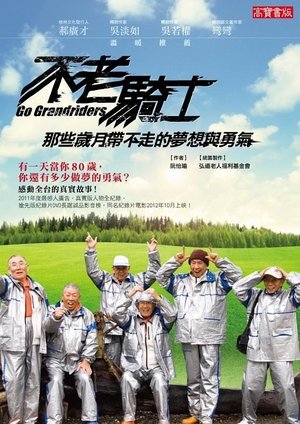 7.3
7.3Go Grandriders(zh)
17 riders with avarage age 81 decide to follow the dream of their youth and start their journey to ride around Taiwan island.
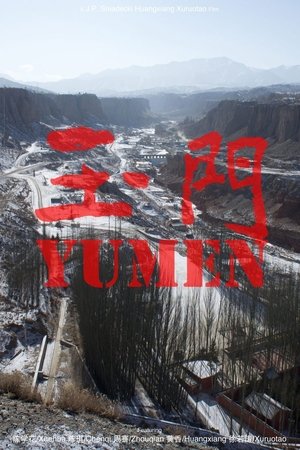 7.0
7.0Yumen(zh)
Set in a quasi-ghost town that once thrived with oil in China's arid northwest, Yumen is a haunting, fragmented tale of hungry souls, restless youth, a wandering artist and a lonely woman, all searching for human connection among the town's crumbling landscape. One part "ruin porn", one part "ghost story”, and entirely shot on 16mm, the film brings together performance art, narrative gesture, and social realism not only to play with convention and defy genre, but also to pay homage to a disappearing life-world and a fading medium.
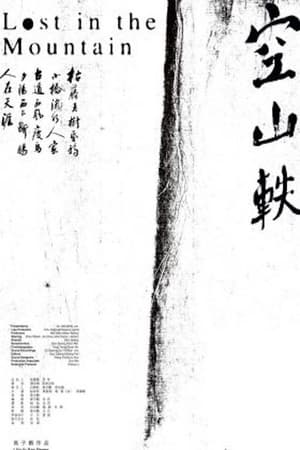 4.0
4.0Lost in the Mountain(zh)
The film is director Gao Zipeng’s first fiction film which takes three years to complete. It premieres on March 27, 2001 in UCCA and stars the poet A Jian, Xiao Zhao and the writer Gou Zi. The film is based on a true crime of disappearance. It creates an atmosphere of what Ma Zhiyuan, a celebrated poet and playwright of Yuan Dynasty, portrays in his famous poem “Autumn Thoughts”: Over old trees wreathed with rotten vines fly evening crows/ Under a small bridge near a cottage a stream flows/ On ancient road in the west wind a lean horse goes/ Westward declines the sun/ Far, far from home is the heartbroken one.
 6.6
6.6The Iron Ministry(zh)
Filmed over three years on China’s railways, The Iron Ministry traces the vast interiors of a country on the move: flesh and metal, clangs and squeals, light and dark, and language and gesture. Scores of rail journeys come together into one, capturing the thrills and anxieties of social and technological transformation. The Iron Ministry immerses audiences in fleeting relationships and uneasy encounters between humans and machines on what will soon be the world’s largest railway network.
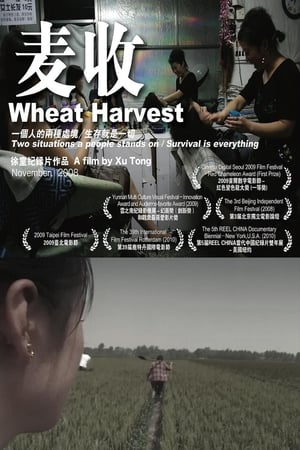 6.8
6.8Wheat Harvest(zh)
A documentary film showing the life of Niu Hongmiao, a 20-year-old country girl who is now a prostitute in Beijing. Around the time of wheat harvesting, she goes back home to Dingxing County, Hebei Province to visit her parents.


